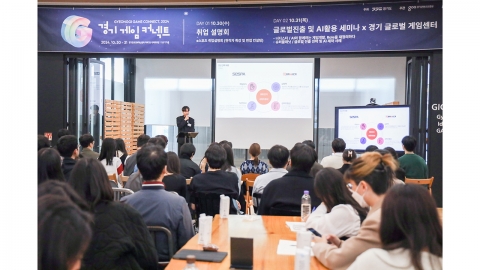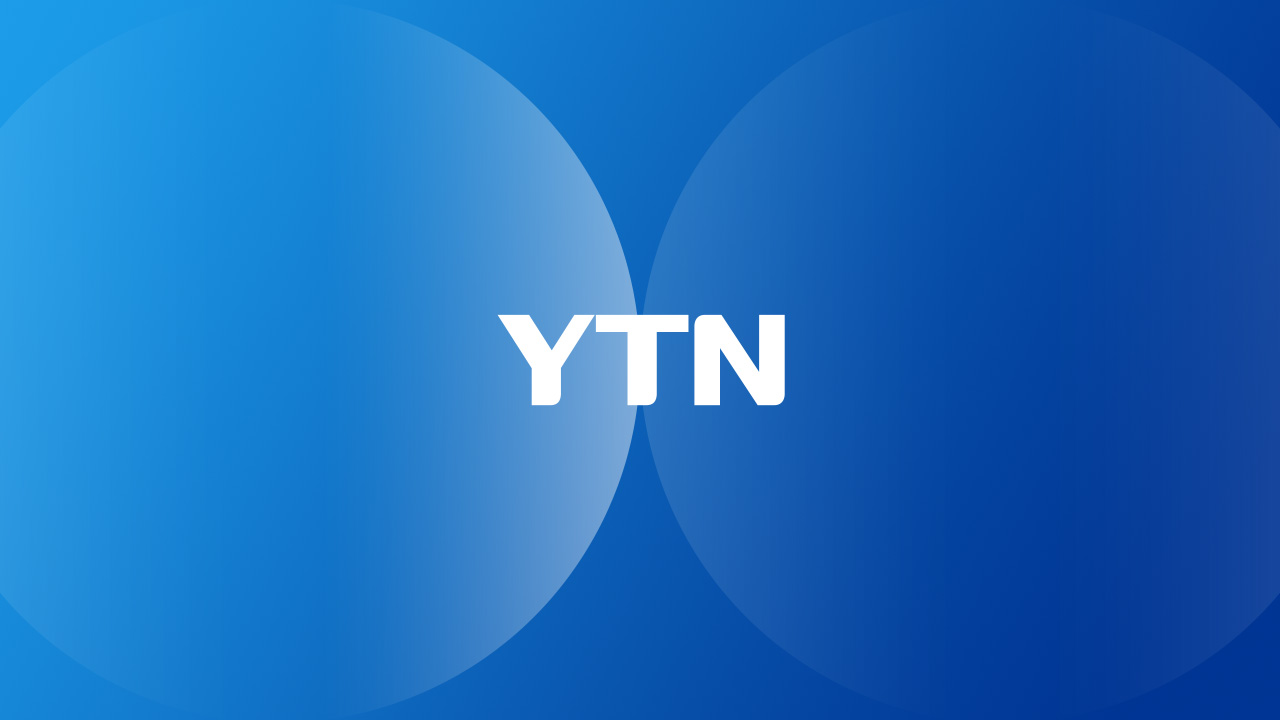[Start Economy] Chey Tae-won and Jensen Hwang "HBM Supply Faster"...1st place in HBM market share?
■ Host: Anchor Lee Jung-seop, Anchor Cho Ye-jin
■ Starring: Professor Heo Jun-young, Sogang University's Department of Economics
* The text below may differ from the actual broadcast content, so please check the broadcast for more accurate information. Please specify [YTN News START] when quoting.
[Anchor]
We give you the latest economic news quickly and kindly. Start Economy, today with Professor Heo Joon-young of Sogang University's Department of Economics. Welcome, professor. You saw the video, but SK Group held an AI forum, and Chairman Chey Tae-won personally released an anecdote with Nvidia CEO Jen Seung-Hwang, drawing a lot of attention.
[Heo Joon-young]
This is very good news for the company. It's kind of a pleasant reminder. So, whenever the two meet, CEO Jensen Hwang tells me to supply it a little faster, to advance the supply period, and to supply it quickly whenever a new product comes out. I said, "I don't know why you're pushing me so fast like a Korean," but in the end, I think there's a kind of confidence behind this story. So, since SK is an exclusive supplier of HBM semiconductors and high-performance semiconductors to companies at the peak of the AI ecosystem called Nvidia, Nvidia is waiting for SK to release new products. Companies that do memory semiconductors can think of SK Hynix, Samsung, and Micron. If Samsung or Micron fail to penetrate Nvidia, Nvidia cannot rely on SK Hynix for a considerable period of time. I think it's an anecdote about these relationships.
[Anchor]
SK Hynix is in good spirits right now. As you said, SK Hynix accounts for more than half of the market, so is it okay to say that it is unrivaled as it is? Or is there a feeling of anxiety to be unrivaled?
[Heo Joon-young]
As I mentioned earlier, if two other companies can supply Nvidia, the situation would be different, but I thought Samsung would pass the quality test called the Qualification Test in the third and fourth quarters of this year, but I haven't heard from them yet. If you look at where semiconductors are going when HBM is produced, most of SK Hynix is going to Nvidia. In the case of Samsung, when HBM is produced, it goes to Google, AMD, and Amazon, and low-performance memory semiconductors are going to China. In the end, looking at this, I think this structure will not change much for the time being, and SK Hynix will continue to make a semiconductor called D-RAM, and if there is a line of highway, it will be faster to make one more space on top. I'm going to stack it like this. However, SK Hynix's own upgrade plan continues to come out, such as supplying 8-layer semiconductors and mass production of 12-layer semiconductors within this year, and developing and supplying 16-layer semiconductors next year. I think Nvidia is also keeping pace with these things.
[Anchor]
Because technology is so important in the market, SK seems to be receiving a lot of love calls, and like Nvidia, big tech companies such as TSMC, MS, and Microsoft seem to be attacking each other.
[Heo Joon-young]
Yesterday's case was SK's AI conference, so CEOs of various companies and AI-related CEOs could have come and talked about the possibility of future solidarity with SK. Basically, the characteristic of the industry called AI is that it has a very omnidirectional ripple effect. And the speed of technology development itself is an area where joint cooperation between companies is helpful for technology development rather than one company exclusively developing technology. In that respect, several companies yesterday. For example, the representative of OpenAI, which is using our ChatGPT, also wants to do something with SK Hynix. Or even TSMC said yesterday that there is something they want to do with SK Hynix, and there seems to be a good possibility that these things will become a reality.
[Anchor]
In addition to this, we also talked about new 5th generation HBM products that were not scheduled. Thanks to that, the stock price soared yesterday. How do you expect the stock to rise going forward?
[Heo Joon-young]
If you think about what happened around the 15th of last month, we talked about semiconductor winter theory at an American investment bank. At the same time, I remember telling the truth that SK Hynix's target stock price was down sharply, and the report came out again less than 10 days later and said, "I think we're wrong." In that sense, in various reports related to the stock market, SK Hynix's target stock price has now reached 194,000 won, but some places are raising it to 200,000 won or looking at close to 300,000 won. If you think about it together with what I said earlier today, the stock market has a part that reflects the future business conditions of companies. If SK Hynix continues to do well in the future, I think these things will continue to be reflected in the upward revision of the target stock price.
[Anchor]
Yesterday alone, SK was in the 6% range, but Samsung Electronics was in the 0.6% range, so the difference was about 10 times. First of all, Samsung Electronics is generally evaluated to be behind SK Hynix in the high bandwidth market. That's why I think I'm doing a lot of tricks. Shouldn't we get behind in mass production of HBM and come up with a different exit strategy? What kind of things are there?
[Heo Joon-young]
Recently, Samsung Electronics has been talking about AI semiconductors from HBM, and overall, there are talks about corporate culture itself. Many people are saying that a lot of innovation has disappeared, but Samsung Electronics is also showing a lot of self-rescue measures. If you look at one, there is a semiconductor consignment production part called foundry. This part is continuously losing money. He said he would reduce investment in this area and said he would focus more on other parts and memory. But then, for example, if Samsung makes HBM, it can actually give its own foundry when it makes it. You can give it to your company for consignment production. However, some of what Samsung is talking about now may be given to TSMC for consignment production. Because some say that consignment production can be given to TSMC in the process of reducing the proportion of its foundry. I think Samsung is looking for a way out in many ways. But the viewers would think it's too complicated, what is a foundry? If you think about our consignment production, Samsung is a comprehensive semiconductor company. You can think of this when other companies give consignment production to Samsung, for example, when they do all the consignment production and design. If we give Samsung consignment production, wouldn't our technology go to Samsung? Because Samsung does all semiconductors and all other processes. That's why Samsung's recent slump in the foundry sector is related to that. It is true that there have been talks about spraying recently.
[Anchor]
I think SK and Samsung are preparing their own strategies to accelerate the upward trend, and Samsung is preparing their own strategies to break through the current struggling pattern. Let's move on to the next topic. The next topic is that French beef is targeting the domestic market for the first time in 24 years since 2000?
[Heo Joon-young]
If you go back to 2000, there was talk of beef from mad cow disease in Europe. In order for us to import beef again from countries where mad cow disease has occurred, the National Assembly must review the import hygiene conditions again. This deliberation has been made again this time. That's why among European countries, one of the EU countries, France, opened the way for beef to be imported again. France is the EU's best beef producer in terms of beef. So there are 130,000 livestock farms, 7 million cows, and 10 million beef cattle. So, it is the most dairy-related country in Europe, especially beef-related dairy, so exports are likely to come into Korea, and the market share is very low by 0.1 and 0.2%. In Korea, most imported beef accounts for 60% of the total beef market. About 90% of them are from the United States or Australia. So, I know that people who have been to the mart buy American or Australian products and eat them.
[Anchor]
Now that I remember it, what is the reason and background of entering the domestic market this time?
[Heo Joon-young]
First of all, imports have passed and France produces a lot of beef, so the French ambassador introduced it himself this time to find an export market. As such, it seems that Korea's market is viewed in terms of another export market. But the problem seems to be this. Then, considering how popular French or EU beef can be to Korean consumers, there may be a unit price problem. First, you have to bring refrigerated meat by plane, but the unit price is bound to go up. Frozen meat may come in, but the price competitiveness is not much better than that of Australian meat. In addition, I don't know much about beef, so when my wife asks me to buy beef, I usually go and buy beef with a lot of marbling. Marbling is said to be less beef than Australian or American beef. In that respect, there seems to be a story about how popular it can be with Korean consumers.
[Anchor]
When French beef comes in, I think our Korean beef farmers and our farmers will oppose it.
[Heo Joon-young]
is correct. Recently, there have been talks that Korean beef farmers have risen in various feed prices and are not profitable in many ways, and the number of Korean beef farmers itself has been decreasing recently. In that respect, I think we need to think about how we can coordinate policy between domestic industries and imported goods from abroad. On the other hand, I said that earlier.Ma may not be very popular right away even if French beef comes in. However, on the one hand, when it comes to consumers' options, various prices for a variety of products, these things may be better for consumers. I think it's a decision in the meantime.
[Anchor]
Let's move on to the next topic. These days, the political community has talked about gold investment tax and gold investment tax so much that I'm going to talk about it, but first, tell me what financial investment income tax and gold investment tax are.
[Heo Joon-young]
Currently, we are paying transaction tax. I pay transaction tax when I buy and sell stocks. Then, do you tax capital gains when you invest and earn capital gains? Currently, it is classified as a major shareholder if it holds more than 5 billion won in certain stocks or has a shareholding ratio of more than a certain size. And when they make profits from the sale, they impose capital gains tax. The rest of you are paying with securities transaction tax right now. However, if a financial investment tax comes in, regardless of whether it is a major shareholder or not. This is important. Stocks, bonds, funds, derivatives. So it's a tax on a per capita basis. It's not a tax imposed on stocks. It refers to a certain tax of 20-25% when the profit from financial investment exceeds a certain amount. Another important part is that we could lose money, right? In the case of losses, it can be carried over for five years. So, if I make a loss this year and earn it next year, I can't be exempted from the financial investment tax this year and pay the investment tax only when I make a profit next year, it can be very unfair. So you can think of this as a tax that makes it possible to carry forward losses for five years.
[Anchor]
In this regard, pros and cons are sharply divided, what are their respective arguments?
[Heo Joon-young]
Most of those who support abolition say that this could lead to large-scale outflow of funds from the stock market. And if you think about it the other way around when abolishing this, there is a part where more funds can enter the Korean stock market as the risk of financial investment tax is resolved. And I think this is also a very important issue. Is there an equity in taxation between stocks and real estate? In the case of real estate, how is the tax levied, but in a way, higher taxes are paid for stocks. Rather, those who say that real estate is beneficial are the argument for abolition. And for those who pay the gold investment tax, there are many people who pay the gold investment tax, so the tax revenue can increase when the gold investment tax is imposed. And it is right to do this because there are not so many investors who benefit from the abolition of the gold investment tax. And finally, Korea, Taiwan, Hong Kong, and China were the countries that did not implement a gold tax. It's a system that most developed countries implement, and in a way, it can be a more fair taxation, I think you're talking about these parts.
[Anchor]
Through a heated debate, the Democratic Party of Korea has concluded the abolition of the financial investment tax, which is scheduled to take effect next year. Our stock market reaction was also very hot in anticipation of the abolition of the gold investment tax.
[Heo Joon-young]
Yesterday, the KOSPI rose nearly 2% and the KOSDAQ rose 3.4%, but I think this. The recent weakness in the stock market in Korea is that there are various constitutional problems in the Korean stock market, and if we abolish the gold investment tax, will this constitution improve in an instant? In the end, it seems that there will certainly be areas that should be combined with improving the constitution of the Korean capital market.
[Anchor]
Finally, let's take a look at the New York Stock Exchange. I think there's a lot of confusion ahead of the U.S. presidential election, FOMC, etc.
[Heo Joon-young]
I lost some weight yesterday. It's not that it fell out a lot. As you said, it's a day before fate. The U.S. presidential election, which has been a lot of talk and troubles, will finally be held. I think there will be some adjustment after the U.S. presidential election.I wonder if the volatility market will remain for a while after the U.S. presidential election. So I think there will be something investors should be careful about this section.
[Anchor]
I see. We've even looked at the New York Stock Exchange. Today, I was with Professor Heo Joon-young of Sogang University's Department of Economics. Professor
, thank you very much.
※ 'Your report becomes news'
[Kakao Talk] YTN Search and Add Channel
[Phone] 02-398-8585
[Mail] social@ytn. co. kr
■ Starring: Professor Heo Jun-young, Sogang University's Department of Economics
* The text below may differ from the actual broadcast content, so please check the broadcast for more accurate information. Please specify [YTN News START] when quoting.
[Anchor]
We give you the latest economic news quickly and kindly. Start Economy, today with Professor Heo Joon-young of Sogang University's Department of Economics. Welcome, professor. You saw the video, but SK Group held an AI forum, and Chairman Chey Tae-won personally released an anecdote with Nvidia CEO Jen Seung-Hwang, drawing a lot of attention.
[Heo Joon-young]
This is very good news for the company. It's kind of a pleasant reminder. So, whenever the two meet, CEO Jensen Hwang tells me to supply it a little faster, to advance the supply period, and to supply it quickly whenever a new product comes out. I said, "I don't know why you're pushing me so fast like a Korean," but in the end, I think there's a kind of confidence behind this story. So, since SK is an exclusive supplier of HBM semiconductors and high-performance semiconductors to companies at the peak of the AI ecosystem called Nvidia, Nvidia is waiting for SK to release new products. Companies that do memory semiconductors can think of SK Hynix, Samsung, and Micron. If Samsung or Micron fail to penetrate Nvidia, Nvidia cannot rely on SK Hynix for a considerable period of time. I think it's an anecdote about these relationships.
[Anchor]
SK Hynix is in good spirits right now. As you said, SK Hynix accounts for more than half of the market, so is it okay to say that it is unrivaled as it is? Or is there a feeling of anxiety to be unrivaled?
[Heo Joon-young]
As I mentioned earlier, if two other companies can supply Nvidia, the situation would be different, but I thought Samsung would pass the quality test called the Qualification Test in the third and fourth quarters of this year, but I haven't heard from them yet. If you look at where semiconductors are going when HBM is produced, most of SK Hynix is going to Nvidia. In the case of Samsung, when HBM is produced, it goes to Google, AMD, and Amazon, and low-performance memory semiconductors are going to China. In the end, looking at this, I think this structure will not change much for the time being, and SK Hynix will continue to make a semiconductor called D-RAM, and if there is a line of highway, it will be faster to make one more space on top. I'm going to stack it like this. However, SK Hynix's own upgrade plan continues to come out, such as supplying 8-layer semiconductors and mass production of 12-layer semiconductors within this year, and developing and supplying 16-layer semiconductors next year. I think Nvidia is also keeping pace with these things.
[Anchor]
Because technology is so important in the market, SK seems to be receiving a lot of love calls, and like Nvidia, big tech companies such as TSMC, MS, and Microsoft seem to be attacking each other.
[Heo Joon-young]
Yesterday's case was SK's AI conference, so CEOs of various companies and AI-related CEOs could have come and talked about the possibility of future solidarity with SK. Basically, the characteristic of the industry called AI is that it has a very omnidirectional ripple effect. And the speed of technology development itself is an area where joint cooperation between companies is helpful for technology development rather than one company exclusively developing technology. In that respect, several companies yesterday. For example, the representative of OpenAI, which is using our ChatGPT, also wants to do something with SK Hynix. Or even TSMC said yesterday that there is something they want to do with SK Hynix, and there seems to be a good possibility that these things will become a reality.
[Anchor]
In addition to this, we also talked about new 5th generation HBM products that were not scheduled. Thanks to that, the stock price soared yesterday. How do you expect the stock to rise going forward?
[Heo Joon-young]
If you think about what happened around the 15th of last month, we talked about semiconductor winter theory at an American investment bank. At the same time, I remember telling the truth that SK Hynix's target stock price was down sharply, and the report came out again less than 10 days later and said, "I think we're wrong." In that sense, in various reports related to the stock market, SK Hynix's target stock price has now reached 194,000 won, but some places are raising it to 200,000 won or looking at close to 300,000 won. If you think about it together with what I said earlier today, the stock market has a part that reflects the future business conditions of companies. If SK Hynix continues to do well in the future, I think these things will continue to be reflected in the upward revision of the target stock price.
[Anchor]
Yesterday alone, SK was in the 6% range, but Samsung Electronics was in the 0.6% range, so the difference was about 10 times. First of all, Samsung Electronics is generally evaluated to be behind SK Hynix in the high bandwidth market. That's why I think I'm doing a lot of tricks. Shouldn't we get behind in mass production of HBM and come up with a different exit strategy? What kind of things are there?
[Heo Joon-young]
Recently, Samsung Electronics has been talking about AI semiconductors from HBM, and overall, there are talks about corporate culture itself. Many people are saying that a lot of innovation has disappeared, but Samsung Electronics is also showing a lot of self-rescue measures. If you look at one, there is a semiconductor consignment production part called foundry. This part is continuously losing money. He said he would reduce investment in this area and said he would focus more on other parts and memory. But then, for example, if Samsung makes HBM, it can actually give its own foundry when it makes it. You can give it to your company for consignment production. However, some of what Samsung is talking about now may be given to TSMC for consignment production. Because some say that consignment production can be given to TSMC in the process of reducing the proportion of its foundry. I think Samsung is looking for a way out in many ways. But the viewers would think it's too complicated, what is a foundry? If you think about our consignment production, Samsung is a comprehensive semiconductor company. You can think of this when other companies give consignment production to Samsung, for example, when they do all the consignment production and design. If we give Samsung consignment production, wouldn't our technology go to Samsung? Because Samsung does all semiconductors and all other processes. That's why Samsung's recent slump in the foundry sector is related to that. It is true that there have been talks about spraying recently.
[Anchor]
I think SK and Samsung are preparing their own strategies to accelerate the upward trend, and Samsung is preparing their own strategies to break through the current struggling pattern. Let's move on to the next topic. The next topic is that French beef is targeting the domestic market for the first time in 24 years since 2000?
[Heo Joon-young]
If you go back to 2000, there was talk of beef from mad cow disease in Europe. In order for us to import beef again from countries where mad cow disease has occurred, the National Assembly must review the import hygiene conditions again. This deliberation has been made again this time. That's why among European countries, one of the EU countries, France, opened the way for beef to be imported again. France is the EU's best beef producer in terms of beef. So there are 130,000 livestock farms, 7 million cows, and 10 million beef cattle. So, it is the most dairy-related country in Europe, especially beef-related dairy, so exports are likely to come into Korea, and the market share is very low by 0.1 and 0.2%. In Korea, most imported beef accounts for 60% of the total beef market. About 90% of them are from the United States or Australia. So, I know that people who have been to the mart buy American or Australian products and eat them.
[Anchor]
Now that I remember it, what is the reason and background of entering the domestic market this time?
[Heo Joon-young]
First of all, imports have passed and France produces a lot of beef, so the French ambassador introduced it himself this time to find an export market. As such, it seems that Korea's market is viewed in terms of another export market. But the problem seems to be this. Then, considering how popular French or EU beef can be to Korean consumers, there may be a unit price problem. First, you have to bring refrigerated meat by plane, but the unit price is bound to go up. Frozen meat may come in, but the price competitiveness is not much better than that of Australian meat. In addition, I don't know much about beef, so when my wife asks me to buy beef, I usually go and buy beef with a lot of marbling. Marbling is said to be less beef than Australian or American beef. In that respect, there seems to be a story about how popular it can be with Korean consumers.
[Anchor]
When French beef comes in, I think our Korean beef farmers and our farmers will oppose it.
[Heo Joon-young]
is correct. Recently, there have been talks that Korean beef farmers have risen in various feed prices and are not profitable in many ways, and the number of Korean beef farmers itself has been decreasing recently. In that respect, I think we need to think about how we can coordinate policy between domestic industries and imported goods from abroad. On the other hand, I said that earlier.Ma may not be very popular right away even if French beef comes in. However, on the one hand, when it comes to consumers' options, various prices for a variety of products, these things may be better for consumers. I think it's a decision in the meantime.
[Anchor]
Let's move on to the next topic. These days, the political community has talked about gold investment tax and gold investment tax so much that I'm going to talk about it, but first, tell me what financial investment income tax and gold investment tax are.
[Heo Joon-young]
Currently, we are paying transaction tax. I pay transaction tax when I buy and sell stocks. Then, do you tax capital gains when you invest and earn capital gains? Currently, it is classified as a major shareholder if it holds more than 5 billion won in certain stocks or has a shareholding ratio of more than a certain size. And when they make profits from the sale, they impose capital gains tax. The rest of you are paying with securities transaction tax right now. However, if a financial investment tax comes in, regardless of whether it is a major shareholder or not. This is important. Stocks, bonds, funds, derivatives. So it's a tax on a per capita basis. It's not a tax imposed on stocks. It refers to a certain tax of 20-25% when the profit from financial investment exceeds a certain amount. Another important part is that we could lose money, right? In the case of losses, it can be carried over for five years. So, if I make a loss this year and earn it next year, I can't be exempted from the financial investment tax this year and pay the investment tax only when I make a profit next year, it can be very unfair. So you can think of this as a tax that makes it possible to carry forward losses for five years.
[Anchor]
In this regard, pros and cons are sharply divided, what are their respective arguments?
[Heo Joon-young]
Most of those who support abolition say that this could lead to large-scale outflow of funds from the stock market. And if you think about it the other way around when abolishing this, there is a part where more funds can enter the Korean stock market as the risk of financial investment tax is resolved. And I think this is also a very important issue. Is there an equity in taxation between stocks and real estate? In the case of real estate, how is the tax levied, but in a way, higher taxes are paid for stocks. Rather, those who say that real estate is beneficial are the argument for abolition. And for those who pay the gold investment tax, there are many people who pay the gold investment tax, so the tax revenue can increase when the gold investment tax is imposed. And it is right to do this because there are not so many investors who benefit from the abolition of the gold investment tax. And finally, Korea, Taiwan, Hong Kong, and China were the countries that did not implement a gold tax. It's a system that most developed countries implement, and in a way, it can be a more fair taxation, I think you're talking about these parts.
[Anchor]
Through a heated debate, the Democratic Party of Korea has concluded the abolition of the financial investment tax, which is scheduled to take effect next year. Our stock market reaction was also very hot in anticipation of the abolition of the gold investment tax.
[Heo Joon-young]
Yesterday, the KOSPI rose nearly 2% and the KOSDAQ rose 3.4%, but I think this. The recent weakness in the stock market in Korea is that there are various constitutional problems in the Korean stock market, and if we abolish the gold investment tax, will this constitution improve in an instant? In the end, it seems that there will certainly be areas that should be combined with improving the constitution of the Korean capital market.
[Anchor]
Finally, let's take a look at the New York Stock Exchange. I think there's a lot of confusion ahead of the U.S. presidential election, FOMC, etc.
[Heo Joon-young]
I lost some weight yesterday. It's not that it fell out a lot. As you said, it's a day before fate. The U.S. presidential election, which has been a lot of talk and troubles, will finally be held. I think there will be some adjustment after the U.S. presidential election.I wonder if the volatility market will remain for a while after the U.S. presidential election. So I think there will be something investors should be careful about this section.
[Anchor]
I see. We've even looked at the New York Stock Exchange. Today, I was with Professor Heo Joon-young of Sogang University's Department of Economics. Professor
, thank you very much.
※ 'Your report becomes news'
[Kakao Talk] YTN Search and Add Channel
[Phone] 02-398-8585
[Mail] social@ytn. co. kr
[Copyright holder (c) YTN Unauthorized reproduction, redistribution and use of AI data prohibited]
Editor's Recomended News
The Lastest News
-
87% of young people, "If wages and welfare are good, the size of the company doesn't matter."
-
First vote 'Dixville Notch', Trump and Harris tied 3 to 3.
-
Chin-yoon said, "There will be measures to convince you..."You have to avoid having to change people".
-
Korea Water Resources Corporation to Begin 'Hydroelectric Power Dam' on the Tina River in Solomon Islands
Entertainment
Game
-
Gyeonggi Content Agency holds a successful e-sports job briefing session...Provide employment information and custom consulting

-
Nexon's 'Enlightenment Online' CBT Starts on the 21st...Reinterpret the original story to stimulate memories.

-
Faker, 5th star... Team China Beat China to Win 5 LOL World Cups






![[Focus Y] From P1Harmony to ATEEZ...What's a world view restaurant that's too immersive?](https://image.ytn.co.kr/general/jpg/2024/1105/202411051524120072_h.jpg)
